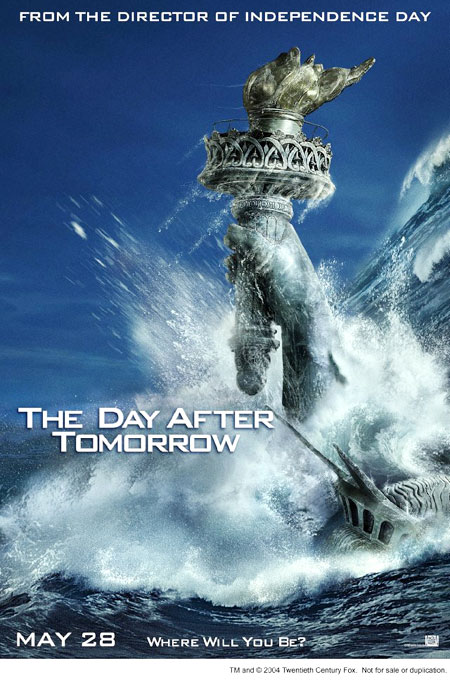

 |
|
The Day After Tomorrow draws attention to environmental issues. |
Hands grip seats and shovel in popcorn as the bomb/asteroid/pandemic zeroes in: Omens of Armageddon have yet to come true in the real world, but the apocalypse has a rich and varied track record on screen.
With doomsayers warning of a new Big One on Dec 21 - supposedly named by the Mayan calendar as an apocalyptic moment - what better time to take an End of the World-themed trip through the archives of world cinema?
Isabelle Vanini, of the Forum des Images film center in Paris, did just that, singling out 80 feature and short films for a month-long movie cycle on the apocalypse screening from Dec 12.
"I could easily have found twice as many," she tells AFP. "You have all sorts, from disaster blockbusters to sci-fi classics, comedy, pseudo-documentaries or black-and-white art-house movies shot on a shoestring."
Recent years have seen the blossoming of a new genre - call it the intimate apocalypse - about how people choose to spend their final hours, like the bohemian Manhattan couple in Abel Ferrara's 2011 film 4:44 Last Day on Earth.
For Peter Szendy, a French philosopher and author of a recent book on the subject, "a film like 4:44 offers a kind of chamber apocalypse". It explores how time stretches out in anticipation of a terrible event.
"But it tells a very simple story. What is at stake is the finite nature of things. Every time someone dies, it's the end of a world."
In a similar vein, last year's apocalyptic pickings also brought Jeff Nichols' Take Shelter about a father readying his family for a storm, and Lars Von Trier's Melancholia, a film about two sisters facing Earth's collision with a mysterious planet.
"Lots of auteurs have suddenly been turning to the apocalypse as a theme," Vanini says.